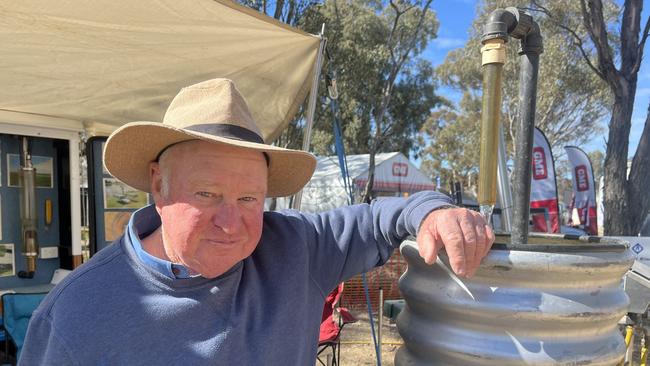Biosecurity Protection Levy: Grain industry slams new ‘tax’
Ag leaders say farmers who grow grain could end up contributing a disproportionate amount to the federal biosecurity levy.
Farmers who grow grain could pay 60 per cent of the government’s proposed new biosecurity protection levy, according to Grain Producers Australia.
GPA chairman Barry Large said in a submission to a levy consultation process that the total proposed levies would have amounted to $284.6 million last year, or 10 per cent of the 2022-23 national crop value of $28.4 billion.
He said that amount would represent more than 60 per cent of the funding to be raised by the 10 per cent across all agricultural sectors.
The government announced a “shared” and sustainable biosecurity funding model in the May budget, with taxpayers, importers and farmers to contribute to running the system.
The National Farmers Federation has also expressed concerns about the levy, saying the consultation is “too rushed” and a more considered process was “warranted for a policy of this significance”.
GPA Chair Barry Large and Chief Exec Colin Bettles speak to @FarmsAdvice host@jcressw3 about the hot button issues facing Australian grain producers right now.
— Grain Producers Australia (@GrainProducers) October 12, 2023
They incl proposed 10% biosecurity tax, grain outlook, sheep prices & the live exports ban.
🎧 https://t.co/Gmm7Izfz16pic.twitter.com/F4iEI6x226
“The levy will impact the majority of Australia’s 85,000 producers across all commodities, in addition to many thousands of supply chain participants involved in levy collection, and be
underpinned by stand-alone legislative and regulative frameworks,” the NFF submission said.
“Adequate time for both policy development and implementation simply has not been
given.”

Southern NSW farmer Bob McCormack of Winchendon Vale said the levy was a tax on farmers.
“As mixed farmers growing crops and producing livestock, we are already paying levies,” Mr McCormack said.
“If this levy improved biosecurity, that would be one thing, but it’s not. It’s a tax.”
The consultation feedback period closed on October 13. The Biosecurity Protection Levy for farmers will come into effect from July 1 next year.
Meanwhile, Agriculture Minister Murray Watt said the cost recovery levy on importers that came into operation on July 1 this year had already reaped $97.4 million up to September 30.
“I was shocked to find that the biosecurity budget we inherited was on track to fall by about 25 per cent, because it was built on temporary, short-term funding,” he said.
“I listened to calls from producers to charge importers more, seeing as imported shipping containers and other goods are one of the largest creators of biosecurity risk. With our changes, for the first time, importers are starting to pay their fair share.”




